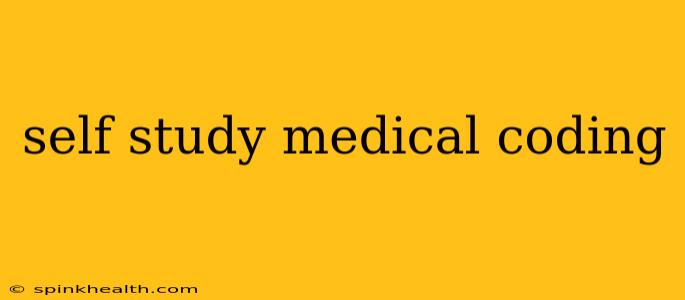Cracking the Code: Your Journey to Self-Studying Medical Coding
The world of medical coding might seem like a labyrinth of numbers and alphanumeric codes, but with dedication and the right approach, self-study can unlock this rewarding career path. This isn't just about memorizing codes; it's about understanding the intricate language of healthcare and translating patient diagnoses and procedures into the universal language of billing. My own journey into medical coding started with a similar quest for self-learning, and I'm here to share the wisdom I've gained along the way.
What is Medical Coding?
Before we dive into the how, let's clarify the what. Medical coding is the process of transforming medical diagnoses, procedures, and services into standardized alphanumeric codes. These codes are used by healthcare providers to bill insurance companies and track patient data. Think of it as the universal translator between doctors' notes and the financial side of healthcare. Accuracy is paramount; a single incorrect code can delay or prevent payment, leading to significant financial repercussions for providers.
How Can I Self-Study Medical Coding Effectively?
Self-studying medical coding requires discipline and a strategic approach. It's not a sprint, but a marathon. Here's a roadmap to guide you:
1. Choosing Your Learning Resources:
- Textbooks: Invest in reputable medical coding textbooks. Look for those that cover the latest versions of the ICD (International Classification of Diseases) and CPT (Current Procedural Terminology) coding systems.
- Online Courses: Numerous online platforms offer medical coding courses, ranging from introductory to advanced levels. Look for courses accredited by recognized organizations, ensuring quality and relevance.
- Practice Software: Practice is key! Coding software simulates real-world scenarios, allowing you to apply your knowledge and receive immediate feedback. This is invaluable for reinforcing what you've learned.
- Flashcards and Quizzes: These are excellent tools for memorizing codes and their associated procedures or diagnoses. Regular review is crucial for retention.
2. Mastering the Core Coding Systems:
- ICD-10-CM (International Classification of Diseases, 10th Revision, Clinical Modification): This system is used to code diagnoses. Mastering ICD-10-CM requires a deep understanding of medical terminology and disease processes.
- CPT (Current Procedural Terminology): This system codes medical, surgical, and diagnostic procedures. Understanding the nuances of each procedure is crucial for accurate coding.
- HCPCS (Healthcare Common Procedure Coding System): This system encompasses codes for supplies, equipment, and services not covered by CPT.
3. Building a Strong Foundation in Medical Terminology:
A solid grasp of medical terminology is the bedrock of successful medical coding. Without it, deciphering medical reports and accurately assigning codes becomes extremely difficult. Many online resources and textbooks offer comprehensive medical terminology guides.
4. Hands-on Practice and Real-World Application:
The best way to learn medical coding is through practical application. Seek opportunities to code medical records, even if it’s just for practice. Several websites offer free or low-cost practice coding sets.
5. Networking and Seeking Mentorship:
Connecting with other medical coders, either online or in person, can provide invaluable support and guidance. Consider seeking out mentors in the field who can offer advice and insights.
What Certification Options Are Available?
Several organizations offer medical coding certifications, demonstrating your competence and increasing your employability. Research different certifications and choose one that aligns with your career goals.
How Long Does it Take to Become a Certified Medical Coder?
The time it takes to become a certified medical coder varies depending on your learning style, prior experience, and the intensity of your studies. However, many self-learners complete their training within 6-12 months.
What Are the Job Prospects for Medical Coders?
The demand for medical coders is consistently high. The healthcare industry relies heavily on accurate and efficient coding to ensure smooth billing processes and data management.
Is Self-Study Enough?
Self-study can be a fantastic starting point, but it’s often beneficial to supplement it with formal training or mentorship, especially when it comes to navigating the intricacies of medical regulations and ensuring accuracy.
Embarking on a self-study journey into medical coding requires dedication and a structured plan, but the rewards of this fulfilling career path are well worth the effort. Remember, this is not merely a technical skill; it's a vital bridge connecting patient care and the financial well-being of healthcare providers. Your journey begins now.

